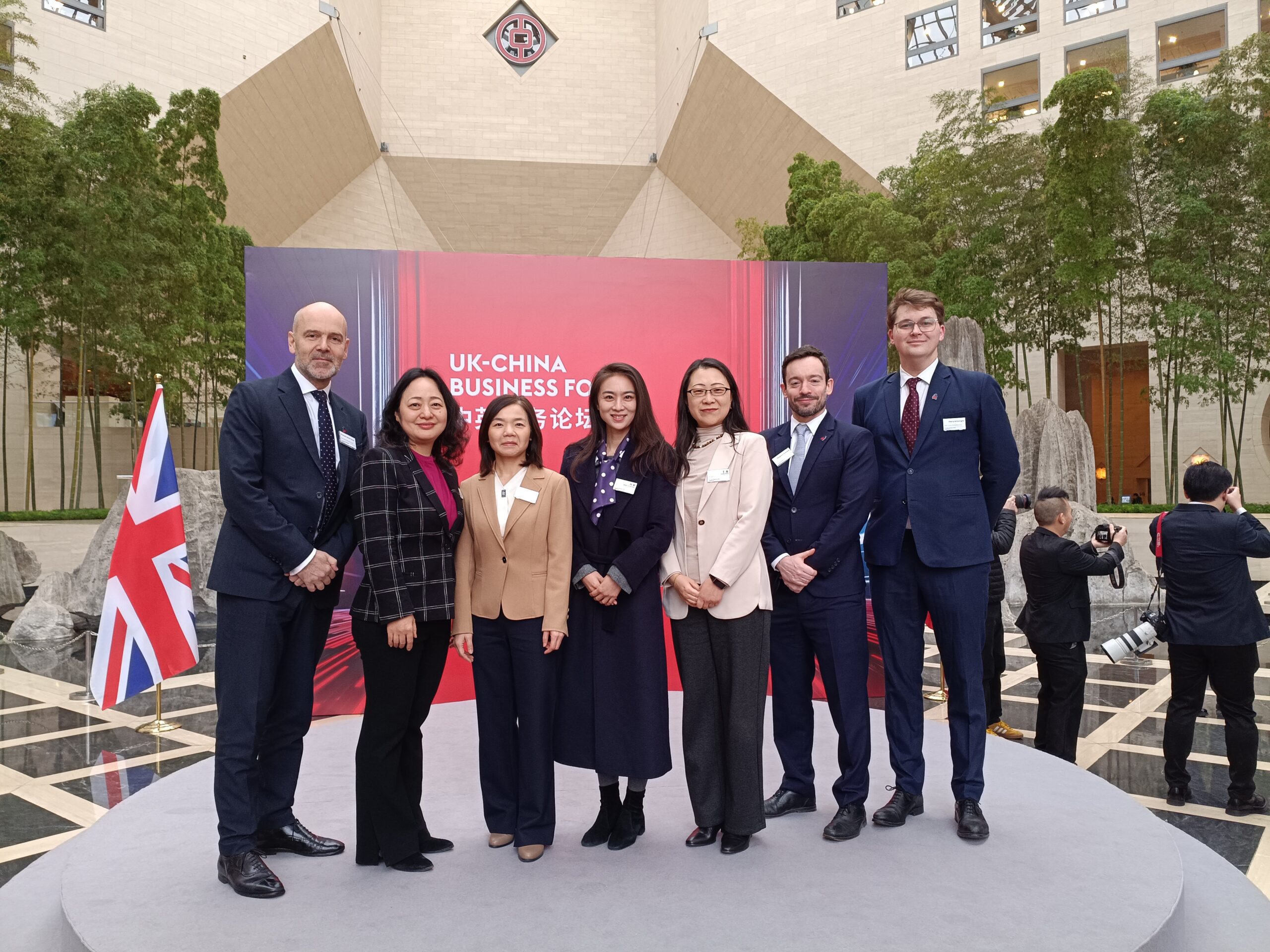Are you a parent with school age children looking to provide your child with a…

Testing Times: The ongoing U.S.-China trade war has unsurprisingly impacted legal work, but firms say that there have been a number of bright spots
“This leaves foreign investors wanting to set up Sino-foreign equity or cooperative joint ventures in something of a dilemma due to the change in governance structures,” McGinty observes. “Do they set up a JV now under the old rules and renegotiate with their partner down the line, or do they agree two sets of documents now and have a ‘flip-over’ to the new documents on Jan. 1, or do they wait till the effective date of the FIL thus giving them better visibility as to the outcome of the trade war and what the implementing regulations will look like?”
“The FIL also sets forth new rules for the protection of intellectual property and technology transfer compliance, both in response to an escalation of disputes in these two areas and as China takes new steps towards market reform. While the new law aims to promote trade and break down barriers for foreign investment, the ongoing trade tensions have caused multinationals to adopt a more cautious approach towards market entry or exit in the U.S. and China,” says Dora Wang, Partner in Reed Smith’s Global Regulatory Enforcement group.
“Many Chinese and U.S. companies have also become more vigilant in managing the compliance issues and commercial and employment disputes that often surface during wind-downs or corporate restructuring, which could be corruption or bribery, HR-related disputes or even environmental noncompliance, or any issues that might trigger a government investigation. These MNCs recognize that they need to step up their efforts to curtail and remediate noncompliance in order to avoid becoming targets of regulatory enforcement in China or the U.S.,” Wang comments.
“We are seeing a significant uptick in legal risk assessments, investigations and regulatory advisory work in the areas with the most enforcement activity—trade sanctions, antitrust and competition law, cybersecurity, and anti-corruption and anti-bribery compliance, for example—as there is a growing concern among multinational companies that they face heightened regulatory scrutiny in the current environment. Chinese companies and foreign companies that transact business with Chinese entities are seeking our legal advice in recalibrating their risk profiles and risk mitigation strategies in light of the changes they see in the external environment,” Wang notes.
“For example, a client may contact us for advice on how to restructure its supply chain or reroute its logistics in order to minimize the impact of tariffs and comply with international sanctions. In doing so, the client may discover previous noncompliance, or disputes may arise as a result of stopping payment or the delivery of goods in connection with the sanctions. Over the course of our representation, we could end up assisting the client with advice on international trade sanctions, multijurisdictional import and tariff rules, contract disputes, banking regulations, and international shipping, as well as conducted an internal investigation and a compliance system upgrade.”
With the recent news about Huawei and other major Chinese firms, “many Chinese companies are reaching out to us on advice regarding how to comply with U.S. export controls and sanctions,” says McGinty. “We help them set up export control compliance programs and guide them when they discover a potential violation of U.S. or other jurisdictions’ export control laws.”
On the trade remedies side, the number of U.S. investigations has doubled in the past two years. “So, we have represented a wide array of Chinese companies and their U.S. importers in front of the Department of Commerce and the International Trade Commission assisting in either reducing the tariff levels or making arguments that the U.S. industry was not ‘injured’ as a result of the tariffs,” he notes.
As far as tariffs are concerned, companies are seeking exemptions from the bilateral tariffs but both countries have product exclusion processes where companies can argue that a specific product should not face tariffs. “We represent clients before the U.S. Trade Representative. While it is a difficult policy environment, we find that a targeted message regarding the potential economic harm can help avoid the tariffs,” says McGinty.
“Many companies, therefore, have already started proactively considering modifying or diversifying their supply chains, looking at alternative investments, or increasing their investments in other countries in the region that are less affected by the trade tensions,” Wang points out. And the most burning questions for them, according to McGinty, are about actual investments currently going through the CFIUS process in Washington.
持续不断的中美贸易战无疑也给律师业务带来了影响,但律师们表示其中不乏一些亮点。
中美贸易战给中美两国经济和企业造成了无法忽视的伤害,同时也对在中国的国际律师事务所的业务产生了挥之不去的影响。
公司业务层面,贸易战带来的不确定性一定程度上造成了外商直接投资量的减少:一方面,投资观望情绪随之增加,因为不知道产品出口到美国,关税上会有怎样的起落;另一方面,已在中国营商的投资者,已有一些在考虑撤资事宜。
“这给律师工作带来的影响就是公司关闭及裁员业务增加,”霍金路伟国际律师事务所公司部合伙人麦安吉律师说到。
新的《外商投资法》在3月15日通过并将于明年1月1日起正式施行。“新法在一定程度上又增加了一层新的不确定性,” 麦安吉律师指出,新法相较旧的版本去掉了很多细节,截至目前实施条例还未颁布。
“由于治理结构的变化,这对于考虑在中国设立合资或合作企业的外国投资者来说,陷入了两难境地。” 麦安吉律师谈到,“是应该按照目前现行旧法设立、待日后重新协商?还是目前新旧两法都照顾到、待1月1日再‘翻新’文档?抑或是等到新法正式实施后再设立?因为那时贸易战结果将更明朗、实施细则也将更明确。”
“新的《外商投资法》还对知识产权保护和技术转让的合规性制定了新的规则,以应对与之相关的日益增多的争议解决案件以及中国为市场改革采取的措施,虽然新的《外商投资法》旨在促进贸易并打破外国投资壁垒,但持续的贸易紧张局势已经使得跨国公司对进入或退出美国和中国市场采取更加谨慎的态度。”礼德律师事务所全球监管执行业务团队的合伙人王婉珺律师指出。
“许多中美公司在处理合规性问题和解决纠纷时也变得更加警惕。此类问题和纠纷通常会在公司清算或重组的过程中浮现,其有可能是腐败或贿赂、人力资源方面的纠纷、甚至是环境违规、或者其他任何可能引发政府调查的问题。这些跨国公司认识到他们需要加大力度来限制和纠正违规行为,以避免成为中国或美国监管执法的目标。” 王婉珺律师评论道。
“我们留意到法律风险评估、调查和监管咨询的工作在以下领域呈显著增长态势,执法活动也主要集中在这些领域——贸易制裁,反托拉斯和反不正当竞争,网络安全,以及反腐败和反贿赂合规等。例如,跨国公司越来越关注他们在当前环境中面临的更加严格的监管审查。同时,与中国公司进行业务往来的中外公司也正在积极寻求我们的法律建议,根据他们在外部环境中可见的变化重新调整其风险评估和风险控制策略。”王婉珺律师强调。
“例如,客户可以联系我们获取有关如何重组其供应链或重新安排其物流的建议,以尽量减少关税的影响并符合国际制裁相关的规定。在此过程中,客户可能会发现以前的违规行为,或者由于停止支付或与交付有关制裁的货物而产生争议。在我们代表客户处理案件的过程中,我们最终可能会就有关国际贸易制裁、多司法管辖区进口和关税规则、合同纠纷、银行监管和国际航运等方面向客户提供建议,同时我们也会为客户进行内部调查和合规系统升级。”王婉珺律师说。
近期,华为等其他中国科技巨头的新闻,“也使得很多中国企业找到我们咨询有关美国出口管制和制裁方面的事项,” 麦安吉律师介绍道,“我们帮助客户制定出口管制合规计划,并在客户发现有可能违法美国或其他司法管辖地的出口管制法律时给与及时指导。”
在贸易救济方面,美国的调查数量在过去两年翻了一番。“所以,我们代表了各类型中国企业和美国进口商,协助他们在美国商务部和美国国际贸易委员会降低关税水平,或者论证美国的工业并未因关税的影响受到‘重创’”。麦安吉律师指出。
就关税而言,企业正寻求从双边关税中获得豁免,但两国的产品排除程序可以支持企业辩称某一特定产品不属于关税征收范围。“我们代表客户与美国贸易代表交涉。政策环境虽然阻碍重重,但我们发现信息中涉及潜在经济损害能有的放矢实现关税减免。” 麦安吉律师说道。
“对此,很多公司已经开始积极考虑修改或多样化其供应链,寻求其他替代性投资机会,或增加对其他受贸易紧张局势影响较小的国家的投资,”王婉珺律师说到。麦安吉律师补充道,对于中国投资者来说,他们最关切的问题就是美国当局对他们目前在美投资的CFIUS态度。



